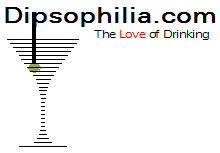< >
September 2007 - Limoncello Back to pub reviews
This drink seems to be the hippest thing in the media these days with celebs like Danny Devito cashing in on it (he’s got his own brand/bottle), and Avril Lavigne referencing it in songs. So here’s the skinny:
What is Limoncello?
According to Wikipedia (http://en.wikipedia.org/wiki/Limoncello), limoncello is a lemon liqueur made in southern Italy. It is made from lemon rinds, alcohol, water, and sugar. It is bright yellow in color, sweet and lemony, but not sour since it contains no lemon juice. Different varieties of lemon are used to produce different flavors. Various alcohols also give varying flavors. Grappa is sometimes used, as is refined pure alcohol. A more refined alcohol maximizes the lemon flavor, whereas darker alcohols add complexity. Higher quality sugars used in the infusion process create a sweeter liqueur.
Limoncello is traditionally served chilled as an after dinner “digestivo”, often in a chilled ceramic cup.
Can I make it myself?
Yes. There are numerous recipes on the internet, two of which I have given below (with the appropriate links to the original pages). The first recipe only takes 22 days. Other recipes recommend 40 to 80 days.
Limoncello
Ingredients:
4 1/4 cup 95% alcohol (1 liter)
7 x ripe lemons, thoroughly washed and dried
4 1/4 cups water (1 liter)
1 lb. sugar (450g)
Directions:
Shave off yellow part of the lemon rinds using a potato peeler. Put lemon rinds in a large glass bottle and add alcohol. Cover the bottle with plastic wrap to prevent alcohol from evaporating and let rest for 12 days at room temperature.
Boil water. Remove from heat and add sugar. Stir until all the sugar has dissolved and let cool. Drain 12-day old alcohol of the lemon rinds and add it to the sugared water. Set aside for an additional 10 days in a sealed glass bottle.
After 10 days, the limoncello is ready. It is best served chilled as a digestive after a meal.
15
lemons*
2 bottles (750 ml) 100-proof vodka**
4 cups sugar
5 cups water
* Choose thick-skinned lemons because they are easier to zest.
** Use 100-proof vodka, which has less flavor than a lower proof one. Also the high alcohol level will ensure that the limoncello will not turn to ice in the freezer.
Wash the lemons with a vegetable brush and hot water to remove any residue of pesticides or wax; pat the lemons dry.
Carefully zest the lemons with a zester or vegetable peeler so there is no white pith on the peel. NOTE: Use only the outer part of the rind. The pith, the white part underneath the rind, is too bitter and would spoil your limoncello.
Step
One:
In a large glass jar (1-gallon jar), add one bottle of vodka; add the lemon zest
as it is zested. Cover the jar and let sit at room temperature for at least (10)
ten days and up to (40) days in a cool dark place. The longer it rests, the
better the taste will be. (There is no need to stir - all you have to do is
wait.) As the limoncello sits, the vodka slowly take on the flavor and rich
yellow color of the lemon zest.
Step
Two:
In a large saucepan, combine the sugar and water; cook until thickened,
approximately 5 to 7 minutes. Let the syrup cool before adding it to the
Limoncello mixture. Add to the Limoncello mixture from Step One. Add the
additional bottle of vodka. Allow to rest for another 10 to 40 days.
Step
Three:
After the rest period, strain and bottle: discarding the lemon zest. Keep in the
freezer until ready to serve.
Dipsophilia has not tried this – but if any of you do, please let us know of your success!
Jackie, September 2007
